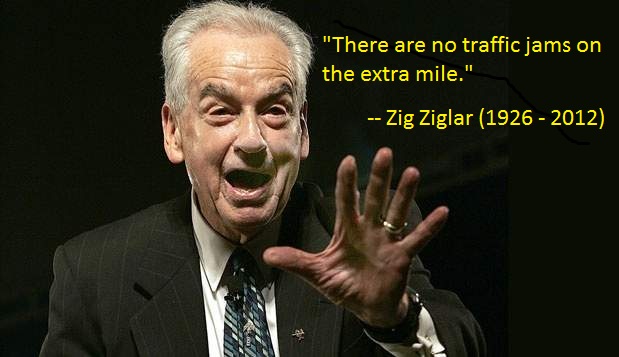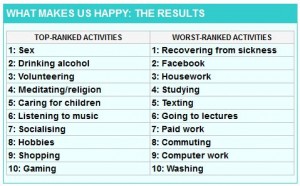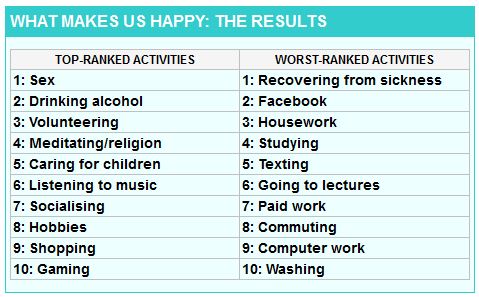Whether it’s about getting our emotional lives under control, learning how to focus on our goals, or sticking to a diet, self-control is key.
But where does self-control come from? Would you be surprised to learn that gargling sugar water, thinking about a friend, or watching a video could help you improve your self-control? As it happens, that’s exactly what cutting edge science is telling us. Here’s why.
1. Self-Control May Not Be a Limited Resource
In recent years, some scientists have suggested that self-control is a limited resource. Why would anybody suggest this? Well, many experiments have shown that if you perform one self-control task, you will do worse on a second self-control task.
Some studies even started to suggest that this had to do with the amount of sugar in your blood: literal energy. After all, participants who drank sweetened lemonade did better on the second task than participants who drank lemonade that was sweetened artificially.
But then scientists had another thought. They tried asking participants to gargle sugar water instead. Remarkably, this also improved self-control. This experiment has been successfully repeated more than once. What is going on here?
It turns out that the presence of sugar on their taste buds was activating the motivational and goal-seeking parts of the brain. It didn’t have anything to do with the energy from sugar.
Researchers Michael Inzlicht of the University of Toronto and Brandon Schmeichel of Texas A&M University interpret studies like these as a sign that self-control is not a limited resource. Instead, it is driven by motivation and attention. They argue that your ability to control yourself really has more to do your beliefs about willpower, how difficult you think tasks are, the incentives involved, and the feedback that people give you.
Put another way, self-control depends on how committed we are to our goals and what we’re paying attention to, not necessarily how much energy we have.
Related post: Define Success
2. Make Self-Control Fun
If self-control isn’t really a depletable resource, why do we act like it is? A study published in the Journal of Consumer Research suggests that it’s because we have convinced ourselves that it isn’t fun.
In one of the experiments, the participants were asked to hold pieces of candy, like M&Ms and Skittles, put them in their mouths, and take them out without eating them. Afterward, they were asked to fill out a few surveys, and weren’t told whether or not they could eat the candy.
After measuring how much self-control each participant usually had, and how much candy they ended up eating, the learned something interesting: the people who were better at self-control thought the candy exercise was fun. The ones with less than stellar self-control? They thought it was work.
Of course, this doesn’t necessarily mean the flip side is true. Which is why the experimenters also put together another test.
In a second experiment, they asked participants to perform a similar task. But this time around, half of them were given initial instructions that used the word “fun.” This subtle difference actually had an impact on their self-control during the experiment.
It was as though the people with less self-control had never considered the possibility that it could be fun, and the mere suggestion was enough to change their behavior.
3. Self-Control (and a Lack Thereof) is Contagious
We have a natural tendency to congratulate ourselves when we get things right, and pass on the blame when we don’t. But a study by the University of Georgia suggests that, when it comes to self-control, we should be taking a look at the people around us either way.
The study involved hundreds of volunteers and tested the impact of watching or even just thinking about people with good or bad self-control. Just how strong was the impact? Seeing the name of somebody with good or bad self-control flash across a screen for, get this, ten milliseconds, was enough to have an influence on people’s behavior.
The impact was also surprisingly broad. Thinking about somebody who has good self-control with their exercise routine can help you with self-control over your career. The individual behavior didn’t seem to matter. All that mattered was the amount of self-control.
The five experiments in the study had the following conclusions:
- People performed better on a hand-grip test when they thought about a friend with good self-control.
- Watching somebody choose a carrot over a piece of cake on a video was enough to improve somebody’s performance on a self-control test.
- When a friend’s name flashed across a computer screen for ten milliseconds, they did worse on a computerized self-control test.
- Writing about a friend with self-control improved results.
- Writing about friends with good self-control caused people to more quickly identify related words like “achieve,” “effort,” and “discipline.”
What’s remarkable about these studies is how instantaneous the results were either way. They weren’t asked to completely restructure their social lives, just think about a friend…or see their name flash across a screen in the blink of an eye.
But beware, if you do this incorrectly, a different study suggests you can end up doing more harm than good. In an experiment at the University of California, participants who imagined themselves in the shoes of the person with self-control actually ended up with less of it. It was as though imagining themselves exercising self-control actually drained them.
What have we learned here? It turns out self-control is something that you can shift right now, in the present. Merely framing it as a fun activity, thinking about a friend with self-control, and staying committed to our goals is all it takes. On the flip side, it also means that it’s a constant effort, a choice to take actions in the here and now, not something that you get to “earn” and “keep.”
![]() Guest blogger Carter Bowles is a science and psychology blogger who is pursuing a degree in Statistics at Idaho State University. If you liked this, you may also be interested in his collection of infographics about the science of creativity.
Guest blogger Carter Bowles is a science and psychology blogger who is pursuing a degree in Statistics at Idaho State University. If you liked this, you may also be interested in his collection of infographics about the science of creativity.




















